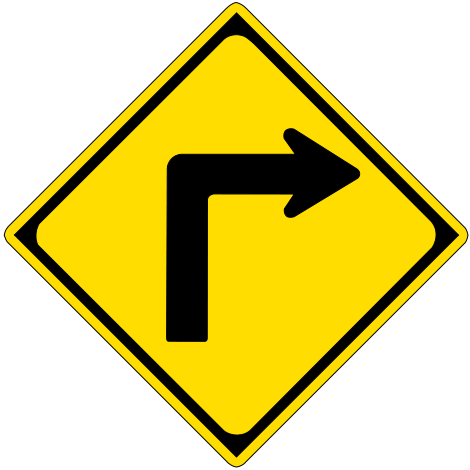| 正面 | 171.turn 英 [tɜːn]美 [tɝn]     |
|---|---|
| 背面 |      释义: 1. cf. hark from hear, talk from tell, stalk from steal.vt. 转动,使旋转;转弯;翻过来;兑换vi. 转向;转变;转动n. 转弯;变化n. (Turn)人名;(德、匈)图恩 例句: 1. For what do we live, but to make sport for our neighbours, and laugh at them in our turn?我们活着是为了什么?不就是给邻居当笑柄,再反过来笑他们。 turn 旋转,转动来自古英语 turnian,旋转,转动,来自拉丁语 tornare,磨,磨圆,用车床加工,来自 PIE*ter,*tere, 转动,摩擦,旋转,可能缩写自 PIE*stwer,转动,旋转,词源同 storm,stir,turbid. turnturn: [OE] The ultimate source of turn is Greek tórnos ‘lathe’, which was probably related to Latin terere ‘rub’ (source of English attrition, detritus, trite, etc). Latin took this over as tornus and formed a verb from it, tornāre ‘turn on a lathe’, hence ‘round off, make smooth’. Old English borrowed tornāre as turnian, which was later reinforced by Old French turner. To the same word family belong tour and tournament.=> attrition, detriment, detritus, tour, tournament, triteturn (v.)late Old English turnian "to rotate, revolve," in part also from Old French torner "to turn away or around; draw aside, cause to turn; change, transform; turn on a lathe" (Modern French tourner), both from Latin tornare "to polish, round off, fashion, turn on a lathe," from tornus "lathe," from Greek tornos "lathe, tool for drawing circles," from PIE root *tere- (1) "to rub, rub by turning, turn, twist" (see throw (v.)). Transitive sense in English is from c. 1300. Related: Turned; turning. Use in expression to turn (something) into (something else) probably retains the classical sense of "to shape on a lathe." To turn up "arrive, make an appearance" is recorded from 1755. Turn about "by turns, alternately" is recorded from 1640s. To turn (something) loose "set free" is recorded from 1590s. Turn down (v.) "reject" first recorded 1891, American English. Turn in "go to bed" is attested from 1690s, originally nautical. To turn the stomach "nauseate" is recorded from 1620s. To turn up one's nose as an expression of contempt is attested from 1779. Turning point is attested by 1640s in a figurative sense "point at which a decisive change takes place;" literal sense "point on which a thing turns; point at which motion in one direction ceases and that in another or contrary direction begins" is from 1660s.turn (n.)c. 1200, "action of rotating," from Anglo-French tourn (Old French torn, tour), from Latin tornus "turning lathe;" also partly from turn (v.). Meaning "an act of turning, a single revolution or part of a revolution" is attested from late 15c. Sense of "place of bending" (in a road, river, etc.) is recorded from early 15c. Meaning "beginning of a period of time" is attested from 1853 (as in turn-of-the-century, from 1921 as an adjectival phrase). Sense of "act of good will" is recorded from c. 1300. Meaning "spell of work" is from late 14c.; that of "an individual's time for action, when these go around in succession" is recorded from late 14c. The automatic automobile turn-signal is from 1915. Turn-sick "dizzy," is attested from early 15c. Phrase done to a turn (1780) suggests meat roasted on a spit. The turn of the screw (1796) is the additional twist to tighten its hold, sometimes with reference to torture by thumbscrews." |